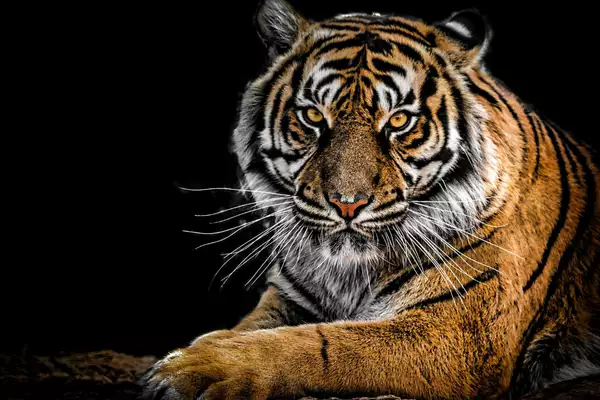During the celebration of 50 years of Project Tiger, India has officially become a founding member of the International Big Cat Alliance (IBCA) by signing and ratifying the Framework Agreement. This initiative underscores India’s commitment to protecting various species of big cats and their habitats.
About the International Big Cat Alliance (IBCA):
- Purpose: To secure the future of 7 big cats, including tigers, lions, leopards, snow leopards, pumas, jaguars, & cheetahs.
- Members: India, Nicaragua, Eswatini, and Somalia are founding members. A total of 24 countries have expressed interest in joining, alongside nine international organizations as partners.
- Formed in: 2023.
- Headquarters: Located in India.
- Funding: The Indian government approved a budget of ₹150 crore for a five-year period (2023-2028).
- Eligibility: All UN member countries can join the IBCA.
Goals of IBCA
- Strengthen Global Cooperation: Enhance collaboration among countries to protect seven big cat species and their habitats.
- Focus Areas:
- Sustainable resource use.
- Addressing challenges from climate change.
- Supporting water and food security.
- Promoting well-being for communities reliant on ecosystems.
Membership and Structure:
- Participants: The alliance includes 95 big cat range countries, non-range countries interested in conservation, conservation partners, and scientific organizations.
- Eligibility: All UN member countries can join IBCA.
- Partner Organizations: Nine international organizations have consented to be partner organizations of IBCA.
Significance of Big Cats:
- Keystone Species: Big cats are essential for maintaining biodiversity within their ecosystems.
- Ecosystem Health: As apex predators, they help control herbivore populations, contributing to ecosystem balance.
- Economic Benefits: Big cats promote ecotourism and provide livelihood opportunities for local communities.
Conservation Status of Big Cats in India
- IUCN Status:
- Tiger: Endangered
- Lion, Cheetah, Snow Leopard, Leopard: Vulnerable
- Jaguar: Near Threatened
- Puma: Least Concern
- Legal Protection: All five big cats in India are listed in Schedule I and IV of the Wildlife Protection Act, 1972, and are included in CITES Appendix.
Ref: Source
| UPSC IAS Preparation Resources | |
| Current Affairs Analysis | Topperspedia |
| GS Shots | Simply Explained |
| Daily Flash Cards | Daily Quiz |
Frequently Asked Question:
What is the purpose of the International Big Cat Alliance (IBCA)?
The IBCA aims to protect seven species of big cats and their habitats through global cooperation.
Which countries are founding members of the IBCA?
India, Nicaragua, Eswatini, and Somalia are founding members of the IBCA.
How many species of big cats are included in the IBCA’s conservation efforts?
The IBCA focuses on tigers, lions, leopards, snow leopards, pumas, jaguars, and cheetahs.
What is the budget allocated by India for IBCA?
The Indian government has allocated ₹150 crore for the IBCA for the period of 2023-2028.
Why are big cats considered keystone species?
Big cats are apex predators that help maintain biodiversity by regulating herbivore populations and ensuring ecosystem balance.



